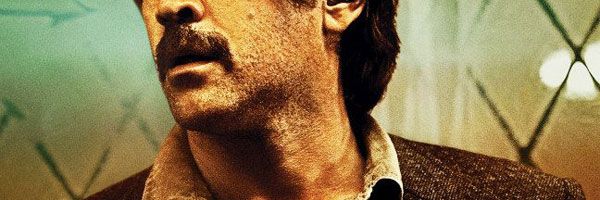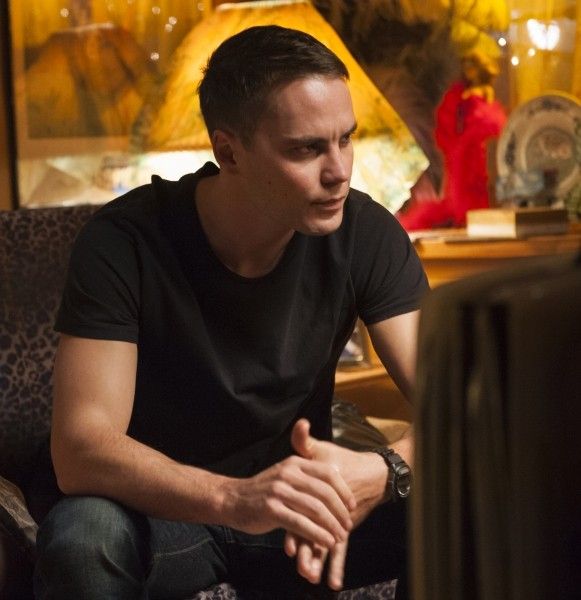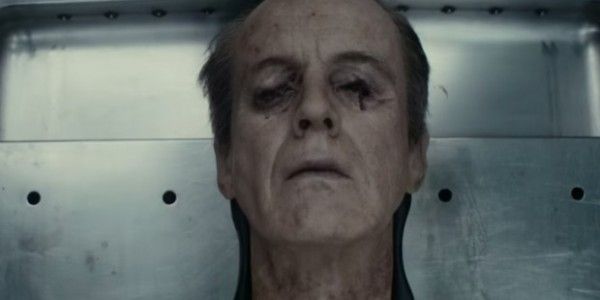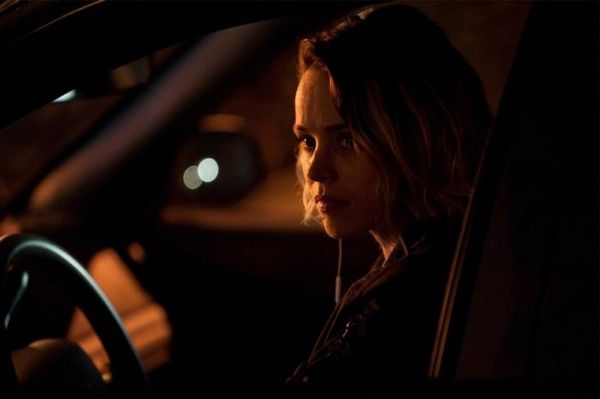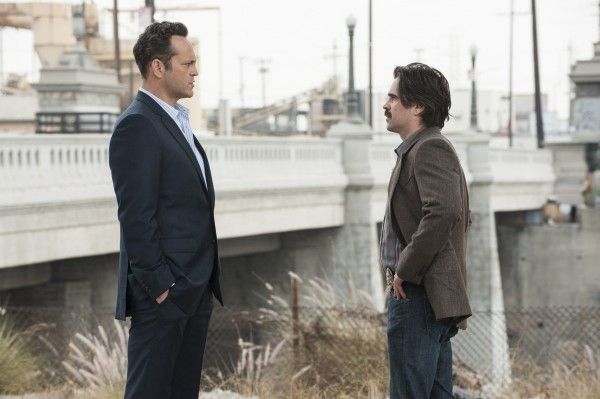Over half of "Night Finds You" is devoted to exposition or reiterating plot details that you might have forgotten in the week since True Detective Season 2 premiered. The continuing backstories of the four lost souls that have gathered into a potential tempest over the death of Casper, a crooked government official, are grim and grisly to the point of being preposterous, especially the bad-dad-on-a-bender story that Frank tells in the beginning, which itself leads to a questioning of whether Frank is even alive or not. It's not to say that these occurrences are funny or unbelievable - they are both highly believable and deadly serious. It's clear from the get-go, however, that this admission that Frank makes to his wife is not tied into personal purge, an unloading of internal demons, by either director Justin Lin or writer and creator Nic Pizzolatto but rather to remind the viewer that Frank is damaged, and was bred to be a violent villain by an uncaring, abusive parent. Gritty, no?
The episode showed a vested interest in delineating how Casper's death effects Frank especially, who looks to lose out on a major contracting and construction investment due to his money never being transferred from Casper to the company that's backing the entire project. In other words, Casper's death ruined Frank's first real chance of going legit and getting in on the ground floor of a project that will benefit all Californians, and will make the city of Vinci great again. Of course, money is never clean in Pizzolatto's eyes, and he spells it out loud and clear early on into "Night Finds You," with a state official tracking the history of Vinci as if it were the history of America: push out the residential space, build up industry, and then turn the whole mishigas into a cancerous, corrupt industrial swamp that pumps out millions of pounds of toxic waste. Industry is the true devil in Pizzolatto's view, which may help excuse Velcoro's quip comparing using an e-cigarette to giving head to a robot, but his perspective has zero insight into the roots of rampant industrialization and capitalism. As of right now, his opinion is about as substantive as a 19-year-old who just got done with 1984.
Velcoro is an even more ludicrous figure, the exhausted and beleaguered cynic-capitalist, who loses his ever-loving mind when his kid doesn't wear the fancy shoes he bought him and goes off again when he is confronted with his ex-wife's (Abigail Spencer of Rectify) demands for supervised visits and possibly sole custody. Lin's framing makes the fact that this argument, which Velcoro arrives to with a fancy present for his son, is happening at a mall, right in front of a Buffalo Wild Wings. For all the certainty that Lin and Pizzolatto put behind the evils of modern capitalism, there's no fight to show the necessities of such a system or, for that matter, why no other system seems to work outside of the human race simply being too lazy, greedy, or simply uninspired to buy into a new way of life. And this pretty thin, pervading pessimism goes for the show's ongoing depiction of the tumultuous relationship between sex and violence as well, which Bezzerides clearly has an unquenchable fascination for. At one point, Velcoro teases information out of a psychiatrist by giving him the details of Casper's demise, where as Bezzerides simple assured him that Casper had no family or relatives to be offended by the release of his personal information. It's a reflection of the show, which is denoted by its ghastly acts of violence and generous sense of female nudity, though Pizzolatto clearly likes his women like he likes his symbols: tortured, either figuratively or literally.
The psychiatrist in that scene is played by the musician Rick Springfield, and his performance proved to be one of the few genuine delights of "Night Finds You." As with the first True Detective series, the unpredictable notes of performance and the stylistic imagery is the light battling against Pizzolatto's juvenile, morbid sense of cynicism in a sick and tired world. There was also a short but revealing exchange between Taylor Kitsch's Woodrugh and Dixon Teague (W. Earl Brown), Velcoro's partner, which touched on Woodrugh's complicated relationship with homosexuality. The dialogue is stiff, but the two actors make the whole scene sing; the way Brown says "anecdote" might actually be the best part of the episode. It's certainly not the "Fuck You" grills that Frank's business partner wears, the same partner who helps lead Velcoro to Casper's Hollywood home where he's shot. It's an admittedly provocative way to end the episode, but other than an escalation of stakes and a potent sense of menace, his death wouldn't really effect the already death-obsessed show. "It's all paper mache" says Frank in that opening, gloomy diatribe and there's ultimately no line that quite sums up the brittle masculine nightmare that "Night Finds You" turns out to be quite as well.
★★ Fair — Only for the dedicated

